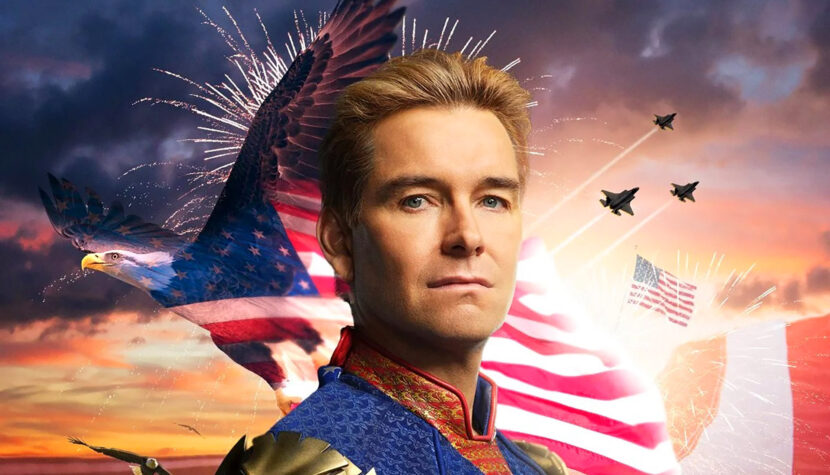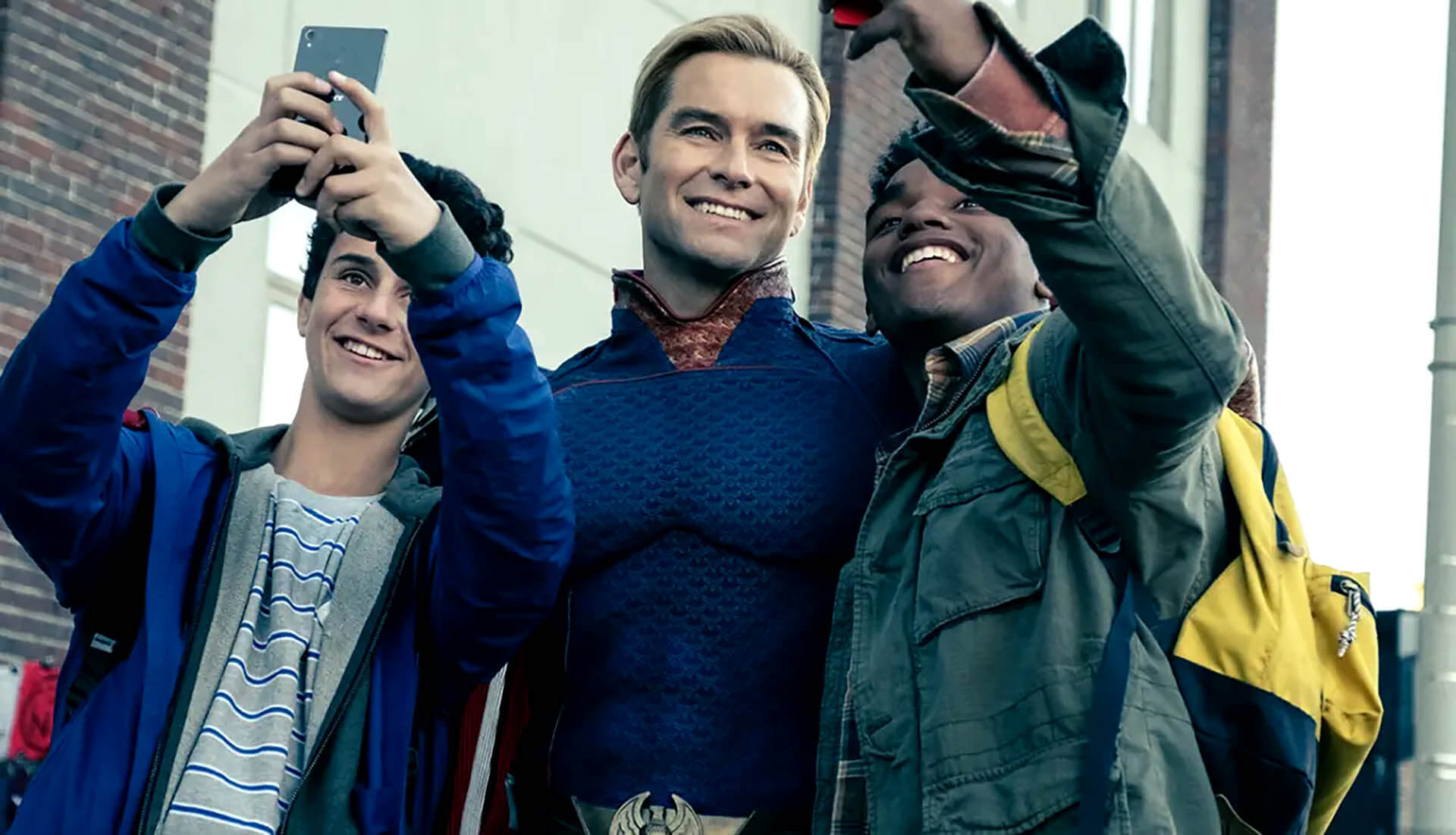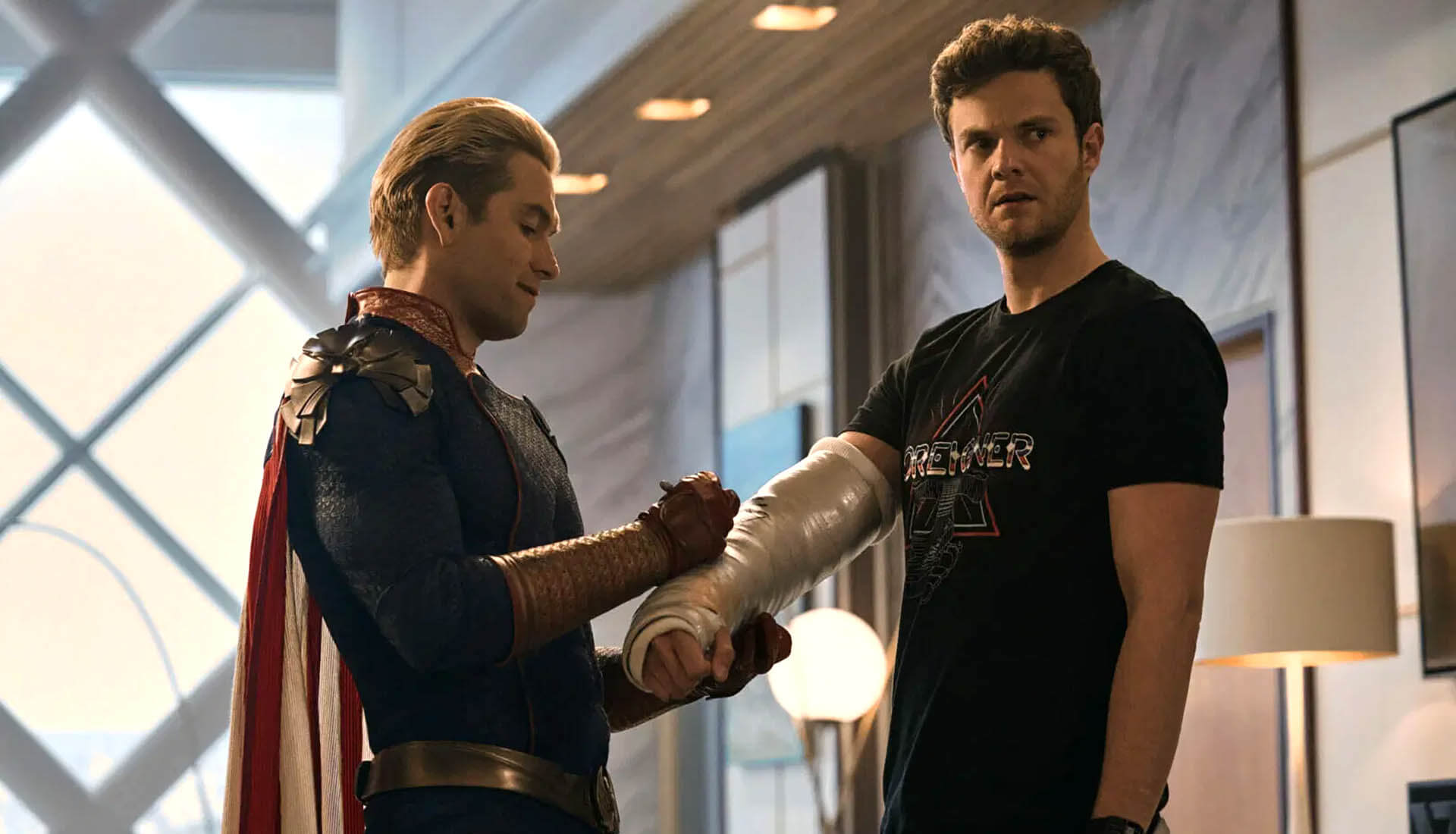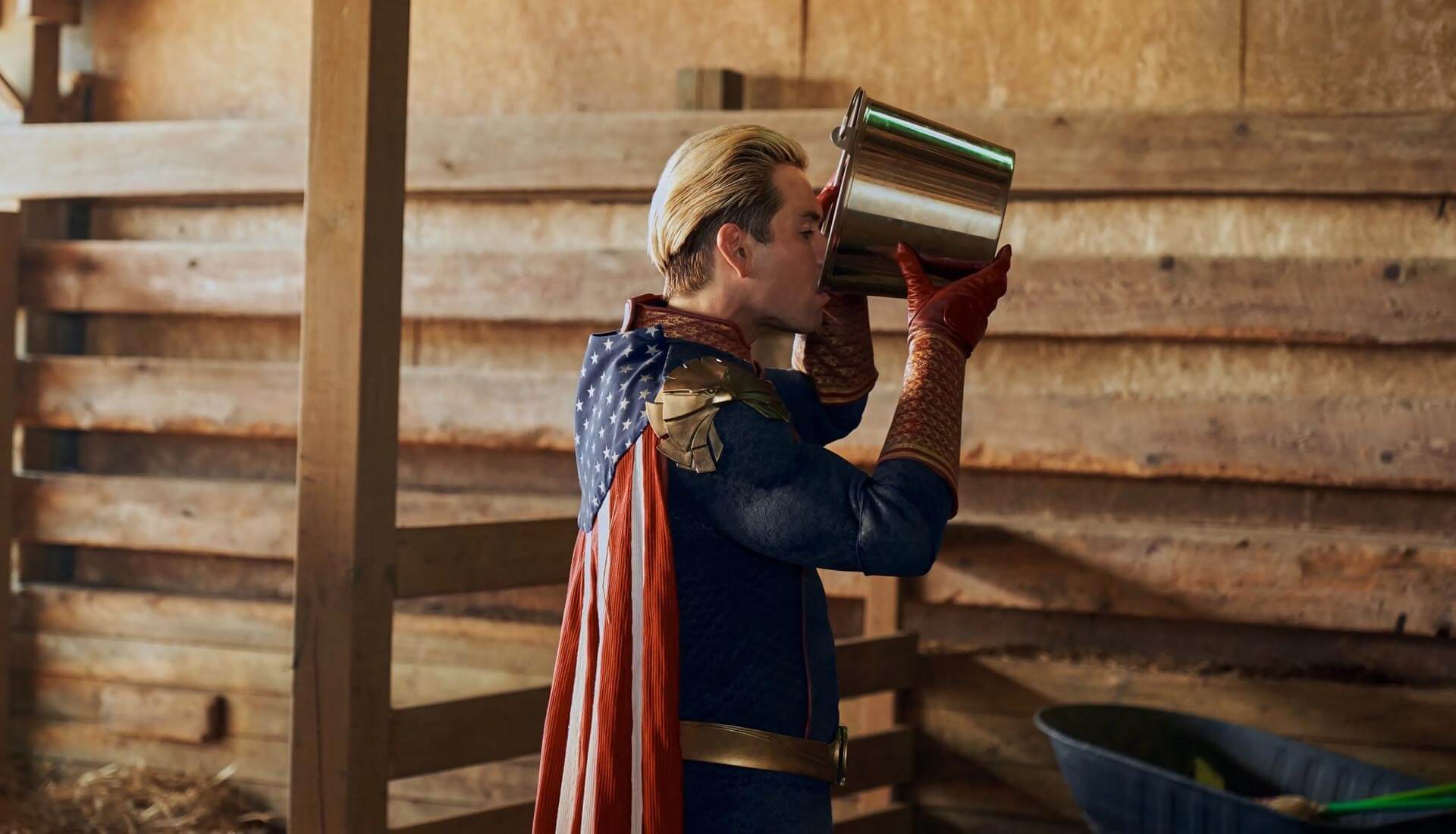HOMELANDER from THE BOYS – Why is he adored even though he can be called a Nazi?

It is said outright that Homelander is an anti-hero, an example not to be followed, yet secretly he is adored. Maybe not openly cheered for, but also not judged entirely negatively. There are specific reasons for this, which are also shameful to discuss publicly today, even though it makes little sense. One should ponder what the series The Boys would be without Homelander (Antony Starr). None of the other supes can compete with him, and Hughie and Butcher alone wouldn’t provide enough entertainment and twisted motivation to successfully fuel so many seasons. They needed a villain who is clearly evil but not judged entirely negatively. He couldn’t be a sociopathic communist because people generally prefer individuality over a collective, even though they work for it to achieve uniquely personal goals. He had to be an individualized Nazi, beautiful like the anthropocentric idea of God, powerful like a human’s dream of being strong, yet full of our fears, perversions, and other unacceptable “normal” traits—in one word, a superheroic human. Homelander is such a character, which is why we secretly treat him as a shameful role model, ambiguously lighting our way like a flashlight under the covers when we want to read but others forbid us for some bizarre, to them reasonable, reasons.
In practice, it appears that Homelander has emerged as a positive hero, not mainly in terms of his actions (though in certain cases I would argue otherwise), but in terms of his overall character and role in the series. This became evident after three seasons, and the current hunger for another season, observable even online, confirms that viewers eagerly await the hero’s return. The question is, do they expect Homelander to fall painfully? I don’t think so. They are more interested in taming this monster with the sparkling smile, even if they are unaware that it is not vengeance they crave. Homelander has been close to falling several times (the showdown with Soldier Boy), and in a way, he has fallen, emotionally after Stormfront’s defeat and injury, yet he still lives, hasn’t lost his powers, and is surrounded by a nation largely craving a strong leader, somewhat intimidated but also blind to crimes as long as they are committed in its interest. This nation is where Homelander’s strength lies, complemented by the supernatural power he wields.

I have no doubt that Homelander is admired by viewers, although common sense suggests he shouldn’t be. He can be called a classic case of a sociopath without the capacity for empathy, with tendencies towards sadism, chauvinism, masochism, and genocide. So who is there to admire? Yet, such a trend is evident, among other places, in comments about the series and memes featuring Homelander. It turns out that positively understood ethics loses not to the sadism or villainy of the superhero but to his individualism and morbid sense of superiority. Homelander is, in a way, a skillfully subliminally designed character, responding to very primitively understood needs of viewers, which are mostly the same for all of us, regardless of our intelligence, education, or even socialization process. We admire Homelander out of envy for the traits we would openly possess ourselves but cannot, mainly due to biological reasons because we are not superheroes, and moral reasons because, in civilized society, it is unacceptable to do what Homelander does in The Boys. I am curious how viewers’ opinions would change if instead of calling Homelander a sociopath, pervert, or sadist, I called him a NAZI? I bet many would initially protest that he is not a Nazi, after all, he expressed disapproval of Stormfront’s plans. Then, once the idea of Homelander being a Nazi sank deeper into viewers’ minds, their admiration for this character would probably decrease unexpectedly. Yet, I used only a different term, more general, ideologically classifying but at the same time magical, triggering reactions like a key, behaviorally set. And it worked.
Homelander and the thought experiment

In practice, it comes down to the same thing. The problem arises only in reflecting on what is the source of the linguistic designation and what this designation carries. I hope you can easily do this thought experiment and determine that Homelander is a far less positive role model if called a NAZI than if called a sociopath, perverted superhero, or even a communist. Communists in our eyes are weak, individually blurred, associated pejoratively but differently from Nazis. It’s like comparing something modern and unique (though scary) to a gray, backward mass with no chance of taking a specific form. If I had to choose, and had only those two options, who knows, my hand, voice, something in me might also waver, and my hand might move from communist to Nazi, drawn by some overwhelming force towards the archetype of strength, order, and characterological heterogeneity.
Homelander is not a communist, at most he could pretend to be the leader of an ultra-communist party for a while, but only until some political instability, which the supe would perceive too psychotically. On this ideological background, especially supported by the killing of Black Noir in season 3, it is evident how deeply rooted Nazi propriety is in our Slavic culture, and perhaps in culture in general. Homelander’s success, one could say commercial—NECA and Funko figurines can be bought on Allegro—is caused by the creators skillfully using various references to archetypes of man promoted by Nazism in terms of his biology and psychology and the way he reacts to failures. And I’m not saying there is no parody in Homelander’s reactions—there is, but it’s just a spice enhancing the flavor and scent that come from something else—strength, racial individualism, chauvinism, and typically religious epiphany of divinity, supported by principles of leadership and social Darwinism. All these are more or less hidden traits in us that, depending on the strength of impact, support our species’ survival and/or affect the individual and collective behavior of entire nations in such a way that they become hegemonic over others, especially weaker, nations. Globally, for maintaining the continuity of the historical process, there is nothing abnormal about this—it’s a process of change. In a moral sense, this assessment is completely different, at least today. In Germany in the 30s and 40s, it was completely different.

Now it is different, although it turns out that hegemonic and genocidal behaviors paradoxically began to be exhibited by nations that themselves experienced purges (for example, Israel). So it all changes, fluctuates, and there’s no point in being surprised by this process, offended by it, or predicting the end of the world because of it. The end of the world will happen regardless of our participation in it. At most, the end of our civilization will come, but that’s not the end of the world, just a change in species dominance. Homelander and his popularity are expressions of this change because 30 years ago such a character would not have had a chance for a visual success, nor would a series like The Boys. Liberal culture has thus succeeded in incorporating patterns that have nothing to do with liberalism and are even hostile to it. The only problem is that in the development and evolution of any ideology, such incorporations usually cause a change in the core of the ideology itself, and consequently its conversion into something completely opposite. But that too is a change, inherent in our life system, and we don’t have to worry about its existence; hence we can enjoy Homelander’s feats instructively, just not replicate them in reality, because The Boys is still fiction. Perhaps the time will come when it won’t be.

